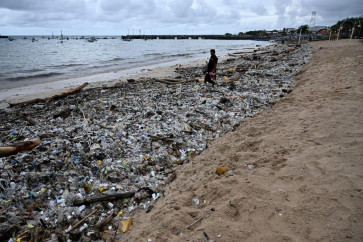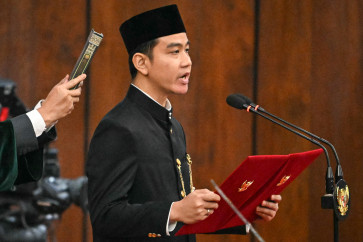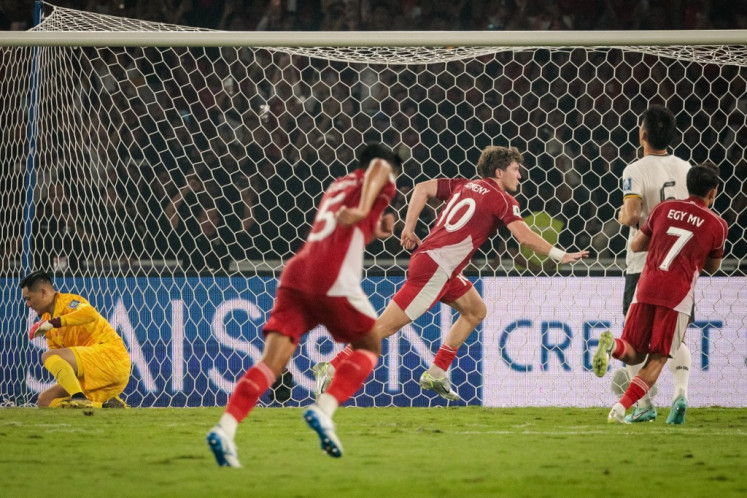Astra Honda Motor to sell electric motorcycles in 2018
Motorcycle manufacturer and distributor PT Astra Honda Motor hopes to begin selling electronic motorcycles in Indonesia next year, as the government expects to see millions of battery-powered two-wheelers on the road by 2025
Change text size
Gift Premium Articles
to Anyone

M
otorcycle manufacturer and distributor PT Astra Honda Motor hopes to begin selling electronic motorcycles in Indonesia next year, as the government expects to see millions of battery-powered two-wheelers on the road by 2025.
Astra Honda Motor marketing director Thomas Wijaya said its parent company Honda was currently carrying out studies on engine technology and battery waste management, before kicking off production.
Honda, however, has yet to determine the country that will serve as its production center.
“Honda is still studying and developing the model and hopefully next year we can start manufacturing it. This is also in line with Honda Motor Global’s [Honda Co. Ltd] commitment [to begin producing such a vehicle in 2018],” he said recently.
Indonesia hopes to see 2.1 million electric motorcycles and 2,200 hybrid or electric cars hit the roads by 2025, as mandated by Presidential Regulation No. 22/2017 on energy planning.
The target is based on the country’s commitment to reduce carbon emissions by 29 percent by 2030, as agreed in the United Nations Framework on Climate Change (UNFCCC) COP21.
“Consequently, the government needs to think about incentives for producers, as research and development of battery technology is very costly, as well as about the infrastructure, such as charging stations and battery waste management facilities, and about subsidies [for vehicle users],” Thomas added.
Thomas said the government also needed to consider producers of spare parts, engines and dynamos that supplied the conventional motorcycle industry.
“Once electric motorcycles become popular, the [conventional] productions will drop, because the new vehicles will use different engines and parts. How will the government help them shift to the new industry?” he asked.
Despite Astra Honda’s plans to market electronic motorcycles, conventional motorcycles will remain the company’s backbone for the next few years.
It has set itself a target to sell between 4.3 million and 4.8 million vehicles to dealers this year, after selling 4.38 million units last year.
The firm claims to have a 75 percent share of Indonesia’s two-wheeler market, and it considers its sales target realistic, even though people’s purchasing power has not fully recovered since the plunge of commodity prices several years ago.
Weak purchasing power led to a 2 percent year-on-year drop in Astra Honda’s motorcycle sales in the first five months to 1.74 million units, while sales in the entire national motorcycle industry fell 5 percent on the year to 2.32 million units, according to the Indonesian Motorcycle Producers Association (AISI).
AISI data include the sales of five motorcycle brands, namely four Japanese brands — Honda, Yamaha, Kawasaki, Suzuki — and one Indian brand, TVS.
Astra Honda hopes to achieve the target in the remaining seven months, with the latest data showing signs of improvement. In May, sales surged 16 percent year-on-year to 394,000 vehicles.
“We’ll be giving out free maintenance service vouchers to buyers and corporate clients with more repair workshops and dealers,” Thomas said, adding that the company also expected government spending to have a continued trickle-down effect on household spending.
The motorcycle industry expects to sell between 5.8 million and 6 million units in 2017, which would be in line with the 5.9 million motorcycles sold nationwide last year.









